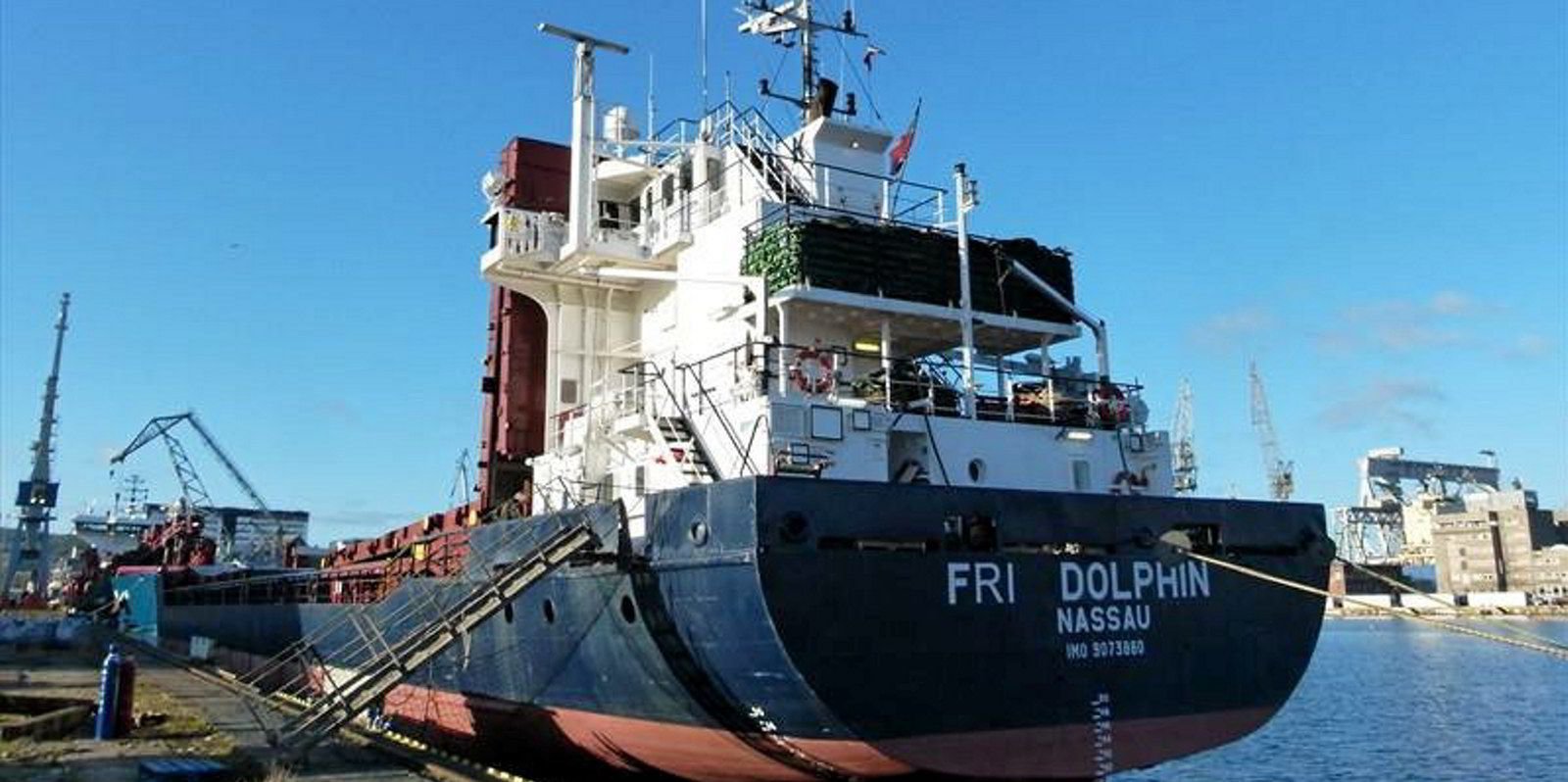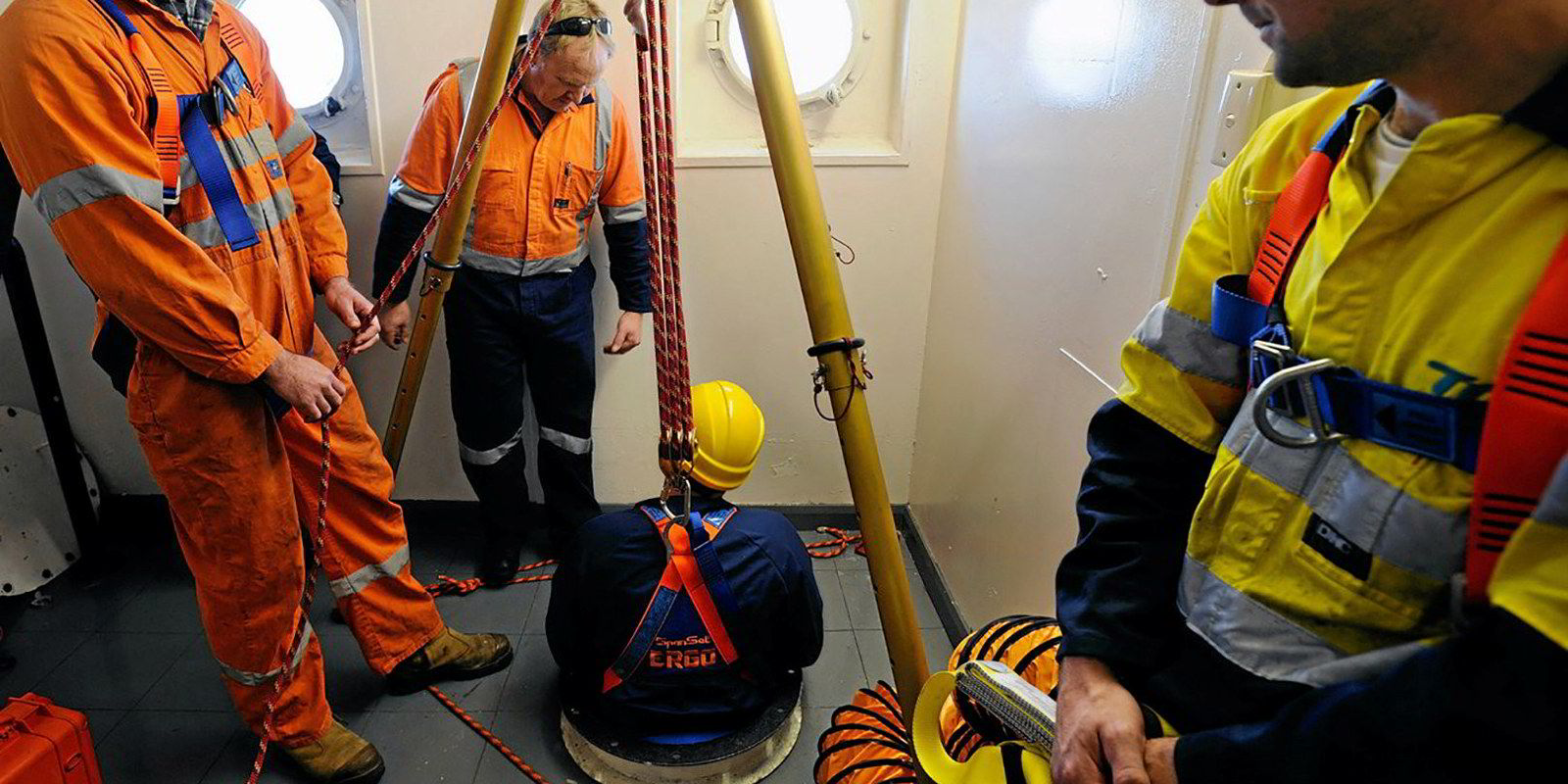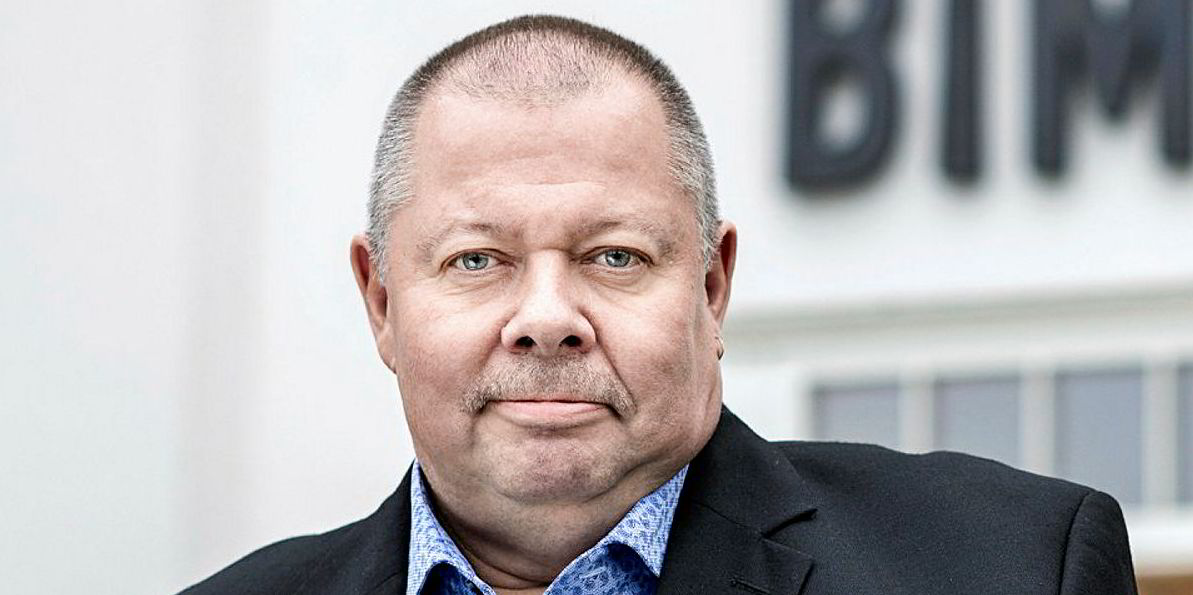The Bahamas Maritime Authority (BMA) is considering proposing mandatory gas detection equipment in accommodation and engine rooms after an investigation into the poisoning of four crew members on a general cargoship.
One seafarer died, and three others became seriously ill, when cargo fumigant leaked into the accommodation unit of the 3,000-dwt Fri Dolphin (built 1994) in February this year.
The Bahamas-flag vessel was carrying a cargo of corn from Sables d'Olonne in France to Hull in the UK. The cargo was fumigated with three bags of aluminium phosphide at the French port.
The investigation found after the ship sailed toxic fumigant entered into the accommodation unit through the ship’s sanitary ventilation system. One crew member, the ship’s cook, died as a result and three others were evacuated from the vessel.
A probe by the BMA’s accident investigation team found the crew had been informed of the risks of the fumigant but they were not aware of likely symptoms following exposure or how to respond.
The accident investigators said there was also “no effective assessment of the gas-tight integrity of the hold was made prior to accepting the charter, loading or fumigating”.
“There was no guidance in the company’s safety management system or any formal assessment of the risks associated with carrying fumigated cargoes,” they wrote.
Similar incidents
The BMA investigation uncovered seven similar incidents since 2008. The BMA accident investigators recommended that the Bahamas flag state gather support to propose to the International Maritime Organization the continuous gas monitoring within the accommodation and engine spaces of vessels carrying fumigated cargoes.
The vessel’s owner and its charterer have taken up the BMA recommendations for adequate training and risk assessment when applying fumigant.
Separate concerns over the dangers of fumigation poisoning have been raised during the coronavirus pandemic. The Standard Club, a protection and indemnity insurer, recently pointed out that untrained crew are being asked to handle toxic cargo fumigants because travel and quarantine restrictions put in place to stop the spread of Covid-19 are preventing qualified experts gaining access to vessels.






